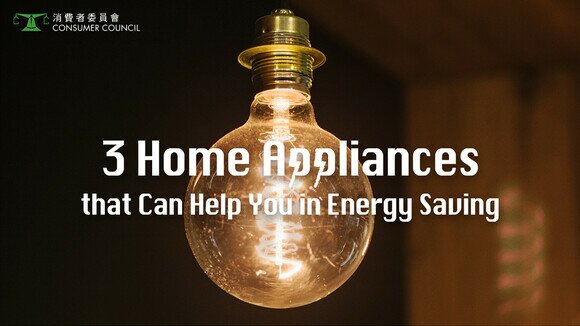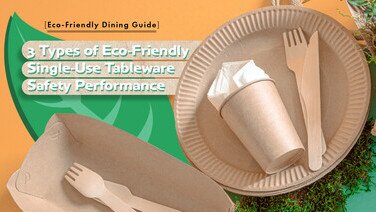Tip on energy saving #1: Save energy while enjoying the cool breeze
The first thing most people do when they return home on a hot summer day is to switch on the air conditioner. If you want to save energy in the long run while enjoying the cool breeze, you may want to spend a bit more and invest in an inverter type air conditioner!
The more energy-efficient inverter type air conditioners may cost 15-20% more than the fixed capacity type, but despite being more expensive, consumers can save enough on electricity costs over 2 to 3 years to make up for the difference. This is because an inverter type air conditioner will run at a high speed when it is initially switched on, and then it will automatically reduce the speed when the room temperature is closer to the target temperature, thereby saving energy.
When purchasing an inverter type air conditioner, you have to take into consideration factors such as room size and the actual environment. For example, if the unit is placed in a huge living room, make sure it has sufficient cooling capacity to prevent it from prolonged operation under maximum load, which will consume a lot of energy. Although the display of ‘Energy Label Grade 1’ can be an easy-to-understand energy efficiency indicator, air conditioners displaying the same ‘Grade 1’ labels may still vary in energy saving due to their differences in the Cooling Seasonal Performance Factor (CSPF). Therefore, consumers should also refer to the CSPF test results published by the Consumer Council (the ‘Council’).
There are various models of air conditioners on the market. Which one is the most energy efficient? You may refer to the article ‘How to Save Energy While Enjoying the Cool Breeze? Air Conditioners with High Energy Efficiency Can Save 20% or More in Energy Costs’ (Chinese version only) in issue #487 of CHOICE Magazine. Choosing an energy-saving model is just the first step. Don’t forget to clean and maintain the air conditioner regularly in order to keep it in the most energy-efficient condition!
Apart from electricity costs, you can also contribute to environmental protection and sustainable consumption by choosing the right air conditioner. We can use the Global Warming Potential (GWP) to assess the impact of refrigerant on the environment. The larger the number, the more likely it will cause global warming. R410A, the most common refrigerant at the moment, has a GWP value of 2,088. But the new R32 refrigerant has a GWP value of only 675, which significantly reduces the impact on the environment. To find out which air conditioners are more eco-friendly, please refer to the article ‘Review of 3/4 Horsepower Window-Type Air Conditioners. Models with Eco-Friendly Refrigerant Perform Better!’ (Chinese version only) in issue #523 of CHOICE Magazine.
Tip on energy saving #2: Washing with warm water can be expensive
Pay heed if you need to do laundry frequently as different models of front-loading and top-loading impeller washing machines may vary in energy consumption by as much as 80%!
The first question you need to ask yourself is, ‘Do you really need to wash your clothes in warm water?’ Warm water at a certain temperature can indeed kill dust mites, decompose grease, and remove sweat odours. But other than that, the difference in cleaning performance between warm water and room temperature water is very small. In fact, room temperature water is more gentle on fabrics and can prevent fading and shrinking. If you don't have to use warm water for washing, then a top-loading impeller washing machine can help you to save. Although top-loading impeller models use room temperature water, their average cleaning performance is only slightly behind front-loading models which use warm water. Surprisingly, some top-loading impeller models even achieve better cleaning results than some front-loading ones!
On the whole, top-loading impeller models without heating function consume 80% less in energy than front-loading ones. Also, their spin speed is lower, and the washing process takes less time as well. However, it should be noted that top-loading impeller models consume more water.
Don't forget that your washing machine is actually very high-tech! Before the wash, sort your laundry items according to fabric types and degree of soiling, then select the appropriate washing program. You may simply choose the ‘Eco’ program which is also a good way to save energy.
In addition to energy consumption, you should also consider water consumption, noise level, size, etc., in order to choose the right washing machine that best caters for your needs. You may refer to the article ‘Top-Loading Impeller and Front-Loading Washing Machines, Which Type Saves More Energy and Water?’ (Chinese version only) in issue #488 of CHOICE Magazine.
Tip on energy saving #3: Energy-efficient LED light bulbs...and extra energy-efficient LED light bulbs!
You may have already replaced those tungsten light bulbs that consume more energy and heat up easily with the more energy-efficient LED light bulbs. But which LED light bulb is the most energy efficient version? It turns out that dim lights do not necessarily save more energy, and brighter light bulbs are not that energy-consuming! To find out if the light bulb is truly energy-efficient, one can't just look at its degree of ‘luminous flux’ but should also look at its ‘luminous efficacy’!
‘Luminous efficacy’ refers to the lumen output per watt of electricity. The larger the value, the better the energy efficiency. A light bulb with low luminous flux (i.e., low in brightness) and one with high luminous flux (i.e., high in brightness) can theoretically have the same ‘luminous efficacy’. The key is the amount of electricity they consume to produce the same luminosity. When selecting a light bulb, you can pay attention to its lumen (LM) output marked on its packaging. The higher the lumen output, the brighter the light bulb. If the LM output is the same, the one with lower wattage is more energy efficient because of its higher ‘luminous efficacy’. The Council tested 10 LED light bulbs on the market, including 7 conventional ones and 3 smart light bulbs. The 3 smart light bulbs claimed to emit up to 16 million colour rays, and users could adjust the color and brightness of these light bulbs through their ‘apps’. It was found that the ‘luminous efficacy’ of 2 smart light bulbs varied significantly under different colours.
In addition to ‘luminous efficacy’, consumers should also consider the lifespan of the light bulbs. Nowadays, light bulbs on the market usually claim to have a lifespan of 15,000 hours to 25,000 hours. When the lumen output of an LED light bulb drops to 70%, it is generally regarded as being expired. From the test, 2 models could still maintain their original luminous flux after 6,000 hours of use, while the remaining 8 models scored slightly behind, with an average drop of 1.1% to 6.2% in luminosity.
If you want to quickly find out if the LED light bulbs that you are using are energy efficient, you may refer to the articles ‘3 LED Light Bulbs Scored High in Luminous Efficacy and Energy Efficiency’ and ‘Choose the More Cost-Effective and Durable LED Light Bulbs’ (Chinese versions only) in issues #512 and #521 of CHOICE Magazine.
Energy conservation is a lifetime commitment. In addition to choosing high-performance, long-lasting and energy-efficient appliances, we should also try to change some of our habits. In recent years, there have been many innovative products and ideas, such as smart extension units. On the other hand, you can preset and switch off your air conditioner 1 hour before you get up in the morning, thus reducing energy consumption. Some people said this method not only had helped them in terms of energy saving but also changed their habits of sleeping in. Do you have any unique idea on this subject? If so, please share with your family and friends!











